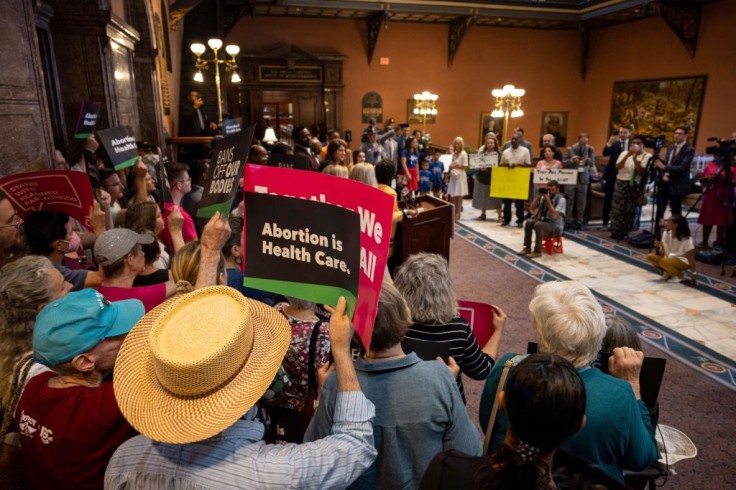
The South Carolina Senate has passed Senate Bill 474, also known as the "Fetal Heartbeat and Protection from Abortion Act," imposing a highly debated six-week abortion ban in the state.
The bill, which cleared the Senate by a vote of 27-19, now awaits the signature of Governor Henry McMaster.
If signed into law, South Carolina will join a list of Republican-led states that have implemented sweeping abortion restrictions in recent years, following the Supreme Court's decision to overturn Roe v. Wade.
However, the measure's survival against potential court challenges remains uncertain.
Senate Bill 474 Imposes Stringent Six-Week Abortion Ban
According to CBS, Senate Bill 474, commonly referred to as the "Fetal Heartbeat and Protection from Abortion Act," would effectively prohibit most abortions in South Carolina once cardiac activity can be detected in the fetus or embryo, typically occurring around six weeks into pregnancy.
This ban would be enforced even before many women are aware of their pregnancy.
Physicians who knowingly violate the law could face felony charges, fines, and the revocation of their medical licenses by the State Board of Medical Examiners.
The bill includes exceptions to save the life of the pregnant individual and in cases of fatal fetal anomalies.
It also allows limited exceptions of up to 12 weeks for victims of rape and incest, with mandatory doctor reporting requirements to local law enforcement.
Additionally, an amendment added by the House would mandate that a "biological father" pay child support from the moment of conception.
According to CNN, a united group of female legislators from both sides of the aisle in the state Senate formed an alliance to oppose the bill's passage on Tuesday.
Referred to as the "sister senators," consisting of three Republicans, one Democrat, and one independent, they argued that modifications made by the House, particularly regarding specific terminologies, significantly changed the bill that had initially been approved by the Senate.
Surprisingly, the three Republican male legislators who previously joined them in preventing a more stringent abortion ban during the regular session voted in favor of the six-week ban.
Uncertain Legal Future and Political Landscape
According to the Associated Press, although the South Carolina Senate's approval of the six-week abortion ban marks a significant milestone, the bill's future remains uncertain due to the likelihood of legal challenges.
Planned Parenthood South Atlantic has indicated its intent to file for a temporary restraining order once Governor Henry McMaster signs the bill into law.
The fate of any legal challenge will also be influenced by changes in the composition of the South Carolina Supreme Court, as the retirement of the sole female justice who previously authored a key opinion on abortion creates a new dynamic.
Abortion in South Carolina used to be legal until 22 weeks of pregnancy.
However, South Carolina now joins many other neighboring southern states in implementing tight abortion bans, including Texas, Oklahoma, Alabama, Kentucky, Louisiana, Arkansas, West Virginia, Tennessee, and Mississippi.
The outcome of potential legal battles surrounding the Fetal Heartbeat and Protection from Abortion Act will significantly impact the future of abortion access in South Carolina.
The debates and legal battles over abortion rights are likely to continue as activists on both sides of the issue vigorously pursue their agendas.
As South Carolina awaits Governor McMaster's signature, the implementation of the six-week abortion ban could have far-reaching implications not only for the state but also for the ongoing national discourse surrounding reproductive rights and access to abortion.